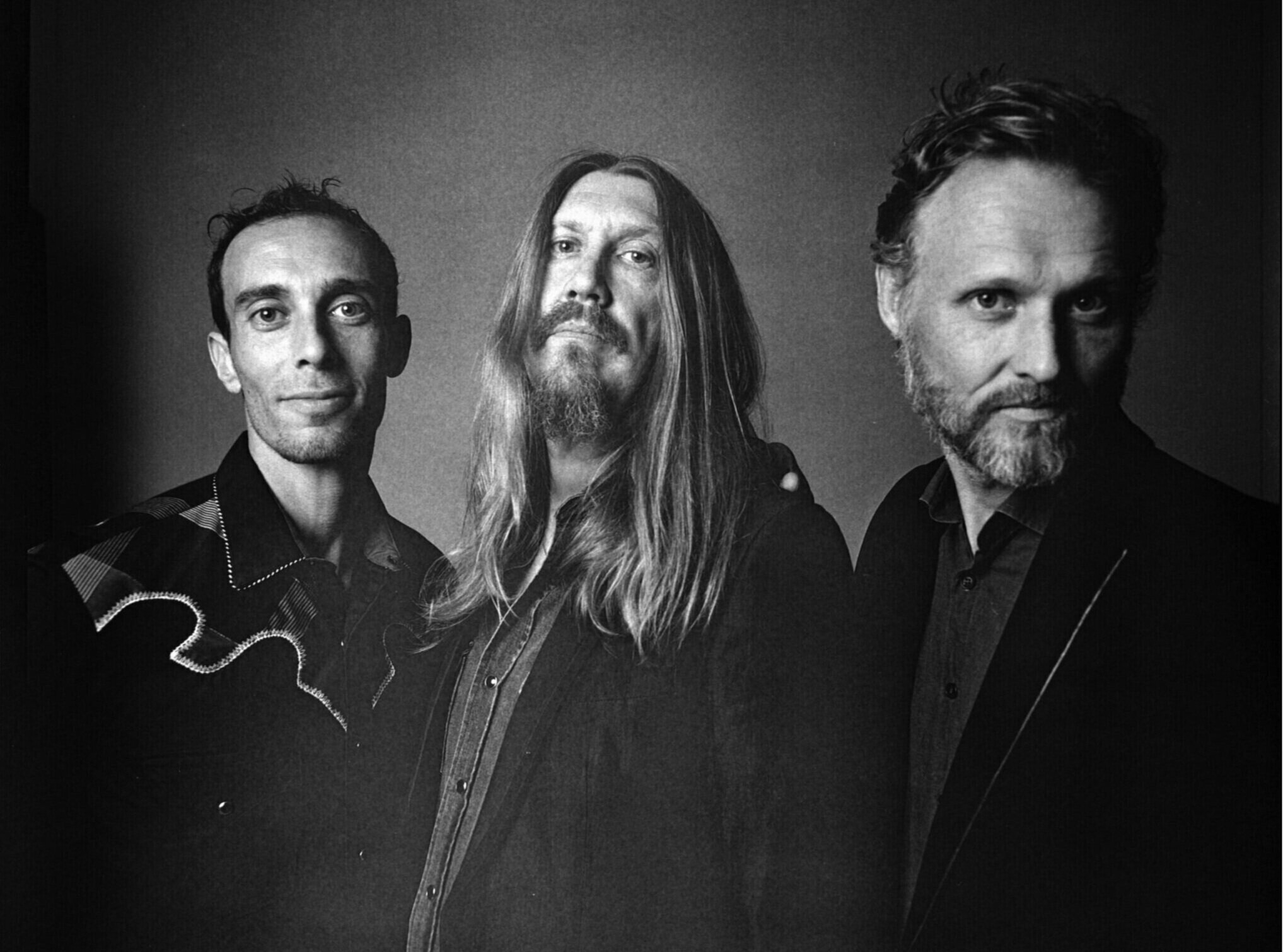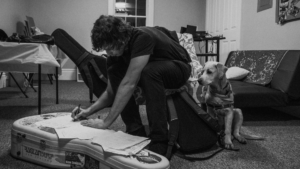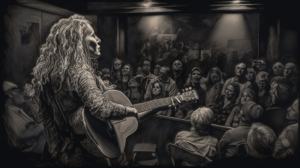We understand the challenges that many musicians face when it comes to pursuing a meaningful and successful career in music. It can be daunting to enter an industry that is constantly evolving and highly competitive, but I’m here to tell you that it’s not impossible to achieve your goals and build a fulfilling career in music. In fact, with the right mindset and strategy, you can not only achieve success, but make a name for yourself in the industry. So let’s dive in and explore some concrete steps and examples for building a career in folk and roots music. Let’s get inspired and motivated to make our dreams a reality!
Step 1: Define Your Niche
In the crowded market of folk and roots music, it’s important to define your niche and focus on a particular aspect of the genre that sets you apart from the competition. For example, you could focus on a specific style of music, such as Appalachian fiddle tunes, or a unique instrument, such as the banjo. You could also choose to focus on a particular theme or subject matter, such as environmental issues or social justice. By honing in on a specific aspect of the genre, you can create a distinctive brand that will help you identify your target audience.
For example, the band Rising Appalachia has built a loyal following by blending traditional Appalachian music with global influences, creating a unique sound that appeals to fans of both folk and world music. Their niche is the intersection of traditional American roots music with diverse cultural influences.
Questions to ask yourself:
- What makes my music unique?
- What aspect of folk and roots music am I most passionate about?
- Who is my target audience and how can I tailor my music to appeal to them?
Step 2: Build Your Brand
Building a cohesive brand is essential for musicians in the folk and roots music scene. A strong brand will help differentiate you from other musicians and create a lasting impression on your audience. Your brand should reflect your music and personality and be consistent across all platforms, including your logo, website, social media profiles, and any merchandise you sell.
Your logo is often the first thing people will see when they encounter your brand, so it’s important to make it memorable and representative of your music. Your website should be easy to navigate and showcase your music in a way that is visually appealing and engaging. Your social media profiles should be active and provide regular updates on your music and upcoming shows. Finally, any merchandise you sell should be of a quality that reflects your brand and image.
For example, the band The Avett Brothers have built a strong brand by combining their passion for traditional American roots music with modern sensibilities. Their logo, a simple line drawing of a bird, is instantly recognizable and appears on all of their merchandise. They also have a strong social media presence, with over 1 million followers on Instagram alone, which they use to connect with fans and promote their music.
Questions to ask yourself:
- What kind of image do I want to portray?
- How can I make my brand memorable?
- How can I use my brand to connect with my audience?
Step 3: Network
Networking is critical for any musician, but it is especially important for those building a career in folk and roots music. Attending music festivals, conferences, and other events where you can meet other musicians and industry professionals is a great way to connect. However, it’s not enough to simply attend these events. You need to be proactive in making connections and building relationships.
Prepare a brief elevator pitch about yourself and your music. This should be a concise and compelling introduction that highlights your unique qualities as a musician. When you meet someone new, you can use this pitch to introduce yourself and start a conversation.
Even for new musicians, it is importance to be generous with your time and the experience you have gained. Offer to help other musicians with their projects, share your knowledge and experience, and be open to collaboration. By being generous and supportive, you can build relationships that will benefit you in the long run. I’ve always loved Alicia Keys’ thoughts on this “If you’re in a position to help other musicians, it’s important to do so. We all benefit from the knowledge and experience of others, and by sharing what we know, we can help the music industry thrive.”
Finally, it’s important to follow up with the people you meet. After an event, send a quick email or social media message to thank them for their time and express your interest in staying in touch. Keep a record of the people you meet and the conversations you have, and follow up periodically to keep the connection alive.
As an example of someone within our community who exemplifies this value, the musician Rhiannon Giddens has built a strong network of connections by collaborating with other musicians in her genre, such as the Carolina Chocolate Drops and Dirk Powell. Rhiannon works closely with the Black Opry offering opportunities to other artists. She also had the opportunity to make multiple appearances as a guest on the television show “Nashville,” which has helped her reach a wider audience and connect with other professionals in the industry.
Questions to ask yourself:
- What events should I attend to network with other musicians?
- How can I make the most of my networking opportunities?
- How can I stay in touch with the people I meet?
Step 4: Build Your Fanbase
Building a loyal fanbase is crucial for any musician, but it’s especially important when you’re building a career. In upcoming articles, we will explore this topic in more detail. However, it is essential for career growth to use social media, email marketing, and other tools to connect with your fans and keep them engaged. Some concrete ideas are to offer exclusive content, merchandise, and other incentives to encourage them to support your music.
For example, the band The Wood Brothers has built a loyal fanbase by offering exclusive content to their fans, such as behind-the-scenes videos and live recordings. They also offer a VIP package for their concerts, which includes a meet-and-greet with the band and other exclusive perks.
Questions to ask yourself:
- How can I use social media to build my fanbase?
- What kind of exclusive content can I offer my fans?
- How can I make it easy for fans to support my music financially?
Step 5: Be Persistent
Building a guerrilla career in folk and roots music requires persistence and hard work. Don’t be discouraged by setbacks or rejection. Keep creating music, building your brand, and networking with other musicians and industry professionals.
For example, the musician Ani DiFranco has built a successful career by staying true to her vision and persevering through setbacks and challenges. She has released over 20 albums and has been a vocal advocate for social and political causes throughout her career.
Questions to ask yourself:
- How can I stay motivated and focused on my goals?
- How can I overcome setbacks and rejection?
- What kind of support do I need to stay on track?
NERFA is here to remind you that building a career in folk and roots music is tough, but it’s not impossible. With the right mindset and strategy, you can make it happen. Remember to define your niche, build your brand, network with other musicians, and connect with your fans. And don’t forget to be persistent – setbacks and rejection are inevitable, but they don’t define you. Keep creating music, building your brand, and networking with other musicians and industry professionals. And as a reminder, our Career 101 articles will be released every two weeks to help tackle these challenges. Together, we can build careers that sustain us and keep the music industry thriving. Let’s do this!






